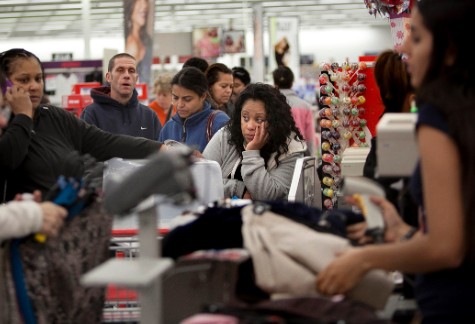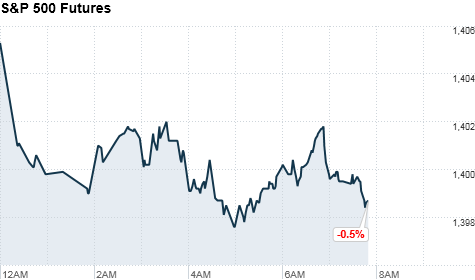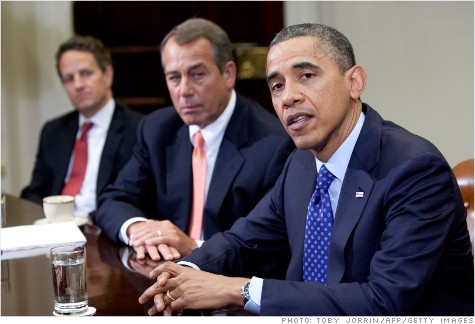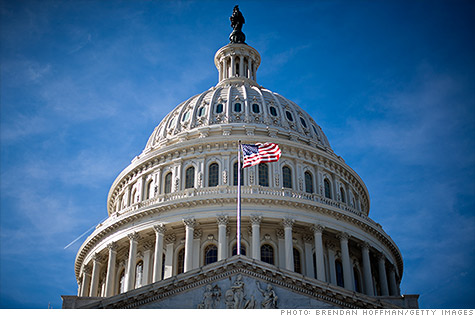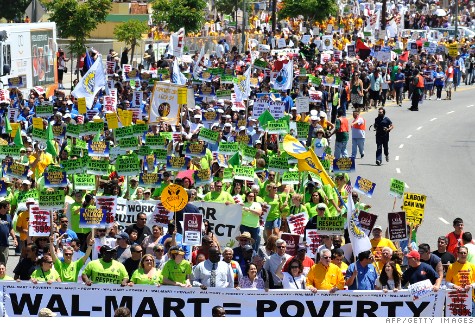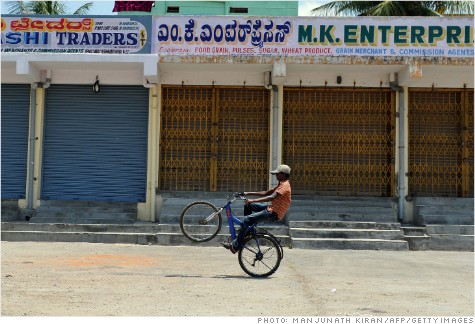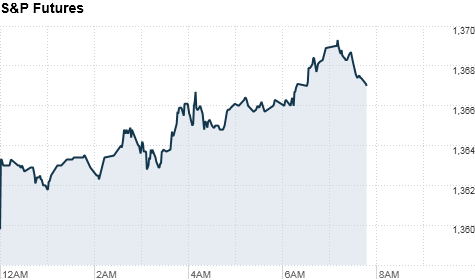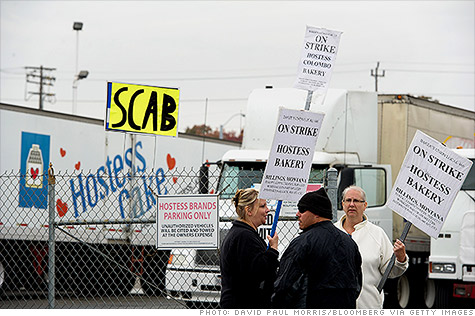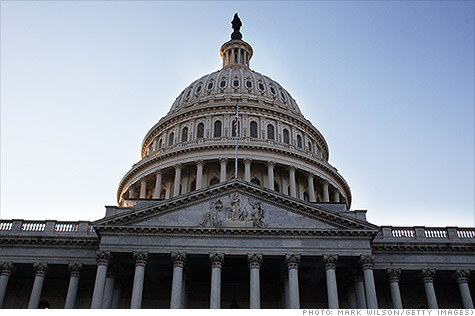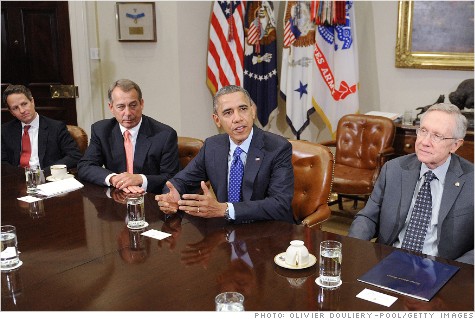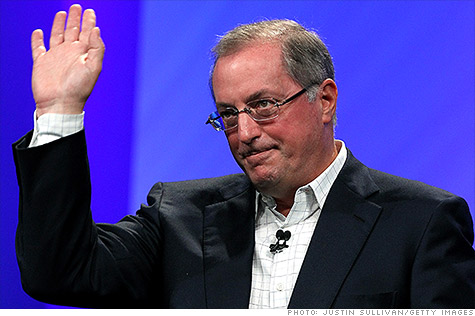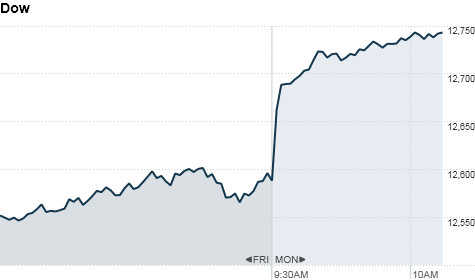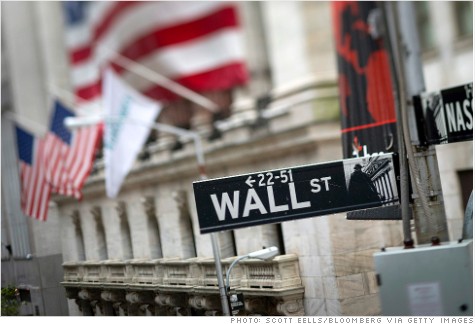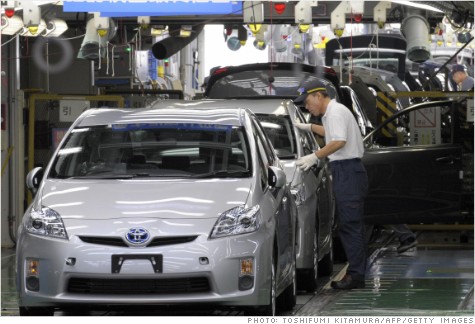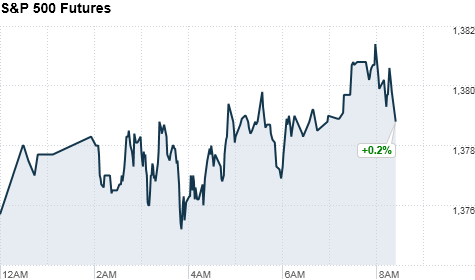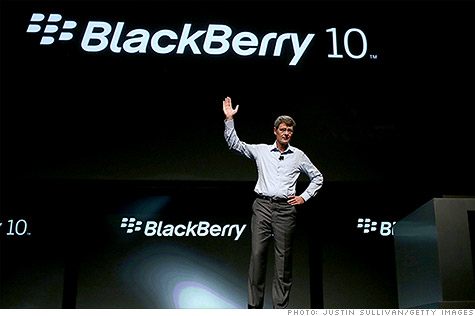
An SG Biofuels worker examines the company's experimental jatropha crop.
NEW YORK (CNNMoney) -- Call it the jatropha bubble.
When word got out several years ago about the promise of a small subtropical tree called jatropha, it became a biofuel sensation. Advocates claimed the fruit tree was hearty, drought-resistant and could be grown on marginal land. Its oil seeds offered a promising biofuel that wouldn't compete with food crops.
Air Japan, Continental Airlines and Air New Zealand ran test flights of planes using jatropha-based biofuel, prompting more than 100 companies to plunk down millions on jatropha plantations in developing countries. Energy giant BP (BP) sunk $160 million into the farms, and one industry group projected that $1 billion would be invested annually in jatropha.
Then everything crashed. Jatropha, it turned out, was much harder to grow than once thought. Yields were inconsistent, and many farmers didn't have the training needed to manage commercial-scale crops. Most of the jatropha operations shut down.
Except for a few outliers. While most of its rivals raced to commercialize the fuel, San Diego-based SG Biofuels took a different path: It hired plant geneticists. They hunkered down in the laboratory to come up with the best genetic variations of jatropha -- ones that would be more consistent, easier to grow and could produce more oil.
"We were impressed they waited until the plant science was there," says Darrin Morgan, director of sustainable biofuel strategy at Boeing (BA, Fortune 500).
While the Seattle plane maker hasn't invested cash, Boeing has collaborated with the startup, sharing its own biofuel research and making industry introductions for SGB in Brazil and other markets.
Armed with backers like Boeing, $27 million from energy and biotech investors, and a team made up of former Monsanto executives and plant scientists, SGB is now testing its genetically boosted seeds in India and Brazil.
Plenty of observers are watching to see if it pays off.
"We have a strong desire to see SGB succeed," says Boeing's Morgan. "They're definitely the real thing."
Related story: Clean energy saves military lives
SGB has had a few new-death experiences.
The company was launched by CEO Kirk Haney, a former tech executive who made a fortune when his employer, ArrowPoint Communications, sold to Cisco for nearly $6 billion. Haney was working at a friend's sustainable forestry company in Guatemala when a local told him about the promise of jatropha.
Like everyone else, Haney saw opportunity. But when he sought advice from University of California plant scientists about what seeds and soil to use, they had never even heard of the jatropha tree.
"He left and I started Googling it, trying three or four different spellings," says plant geneticist Bob Schmidt, now SGB's chief scientist. "The more I learned about it, the more excited I became about it."
But Schmidt ultimately told Haney that the existing, wild jatropha seeds wouldn't work. In his view, anyone hoping to profit from the plant would first need to fund a breeding and biotechnology program to develop hybrid seeds with higher yields that could grow in some of the most infertile ground in Africa, Southeast Asia and Latin America.
Jatropha was a perfect candidate for experimentation, Schmidt says, because it reseeds quickly and has myriad genetic variations from which to pull.
In 2008, the startup lined up $200 million from investors. Then the economy collapsed -- and so did the jatropha hype. Three weeks before the cash hit the bank, investors pulled out.
Haney frantically reached out to friends and contacts, seeking new backers, but no one would bite. To keep things rolling, Haney convinced the company's 10 employees to work for stock or take pay cuts and wrote a personal check to pay the company's research bills.
That move "kept us alive and focused," he says.
Over the next two years, Haney rounded up $9.4 million from angel investors and from Flint Hills Resources, a large petroleum and ethanol refiner, and Life Technologies Corp., a biotechnology tools company. Last year, venture capital investors put $17 million more into the startup.
Today SGB has 13 field trials of its hybrid seeds in Brazil, Guatemala and India, and it's trying to fill 20 executive and management jobs to expand those markets and move into Africa and Southeast Asia. The company plans to put a big emphasis on farmer education, selling not only its seeds but also its expertise, such as helping pick the best locations and conditions for the seeds. SGB plans to collect royalties on fuel produced from its seeds.
One new customer, JetBIO -- a Brazilian consortium of Airbus, the Inter-American Development Bank and TAM Airlines -- is optimistic about an ongoing field trial it's doing with SGB in Brazil.
"I think this will be game-changing in the industry, because what it really lacked was proper genetics," says Rafael Abud, JetBIO's managing partner.
Still, the company's fate is tied to many forces beyond its control, including potential changes in renewable energy policies in countries across the globe. Right now, demand for biofuel is huge, but SGB has a lot to prove, says Michael Cox, an analyst who follows the space for Piper Jaffray.
This time around, jatropha needs to prove it can be an economical alternative to conventional fuels.
"The plant needs to perform," says Boeing's Morgan. "If so, they're the beginning of jatropha 2.0." ![]()
First Published: November 26, 2012: 5:37 AM ET
